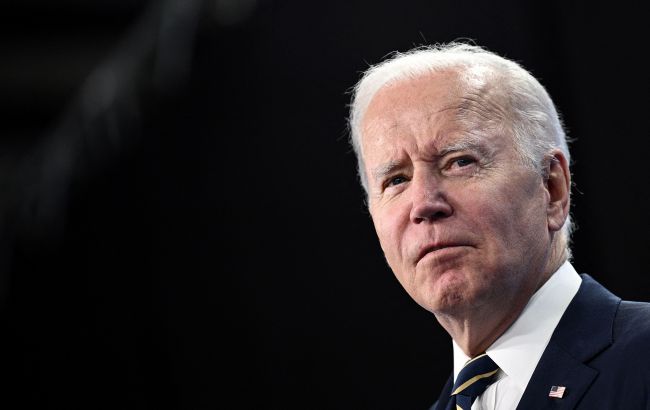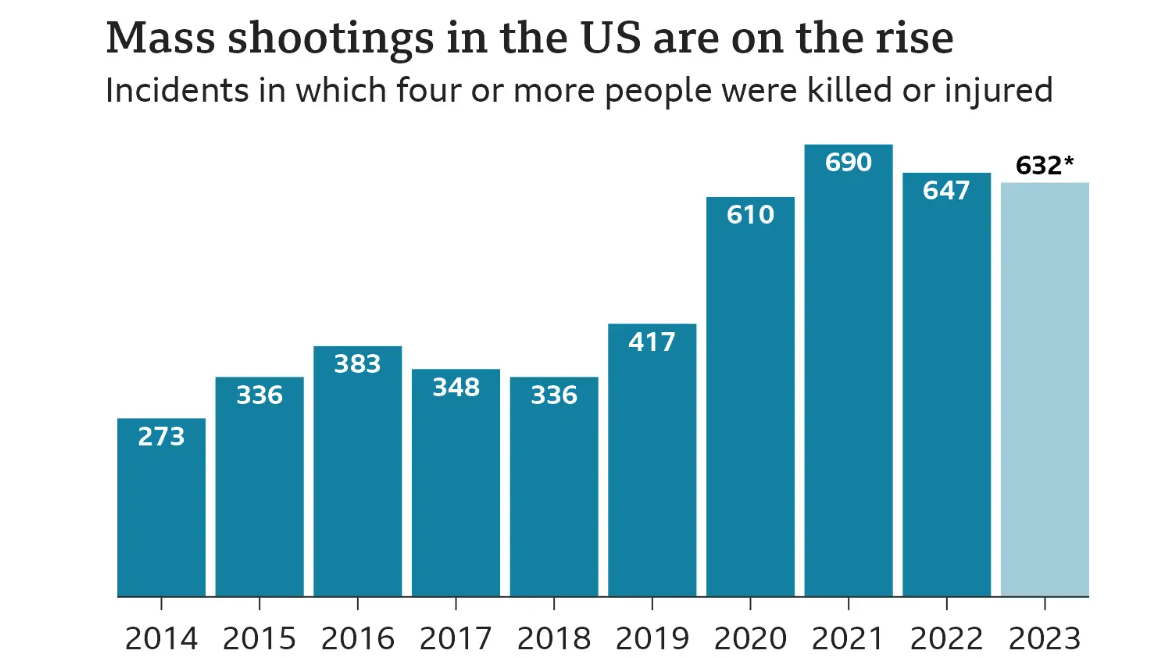Gun control debate heats up in U.S. amidst rising mass shootings
 U.S. President Joe Biden (Getty Images)
U.S. President Joe Biden (Getty Images)
U.S. President Joe Biden appealed to the GOP on Wednesday, urging them to cooperate on gun control measures in response to recent shootings in Texas and Nevada amid a "gun violence epidemic."
Read below about U.S. gun policy and mass shootings that trigger Democrats-Republicans debates on the issue.
To prepare the story, the following sources were used: The Hill, BBC, Council on Foreign Relations, Gallup poll, and Gun Violence Archive.
What Biden said
“For all the action we have taken since I’ve been president, the epidemic of gun violence we face demands that we do even more,” Biden said.
In his remarks, the president called for bipartisan efforts, urging Republican lawmakers to join Democrats in banning assault weapons, enacting universal background checks, requiring the safe storage of guns, and advancing other commonsense measures that "will help stem the tide of gun violence.”
“This year alone, our nation has experienced more than 600 mass shootings, and approximately 40,000 deaths due to gun violence. This is not normal, and we can never let it become normal,” Biden adds.
Shootings in Texas and Nevada
The appeal follows a series of shootings in Texas, where six people were killed and several others injured on Tuesday. On Wednesday, a shooting happened at the University of Nevada, Las Vegas, with at least 3 victims reported. President Biden expressed condolences for the victims and gratitude for the police in his statement.
Mass shootings in the U.S.
The Gun Violence Archive reports that the United States has witnessed over 630 mass shootings this year alone. A mass shooting, as defined by the Archive, involves four or more people being injured or killed in an incident. These incidents happen both in homes and in public.
Remarkably, the past three years have each recorded over 600 mass shootings, averaging nearly two incidents per day.

Mass shootings in the U.S. are on the rise (BBC)
Gun reform
The Biden administration has consistently advocated for gun reform and recently established an office for gun violence prevention. President Biden has openly criticized Republicans in Congress for their inaction on the issue.
The U.S. gun policy

